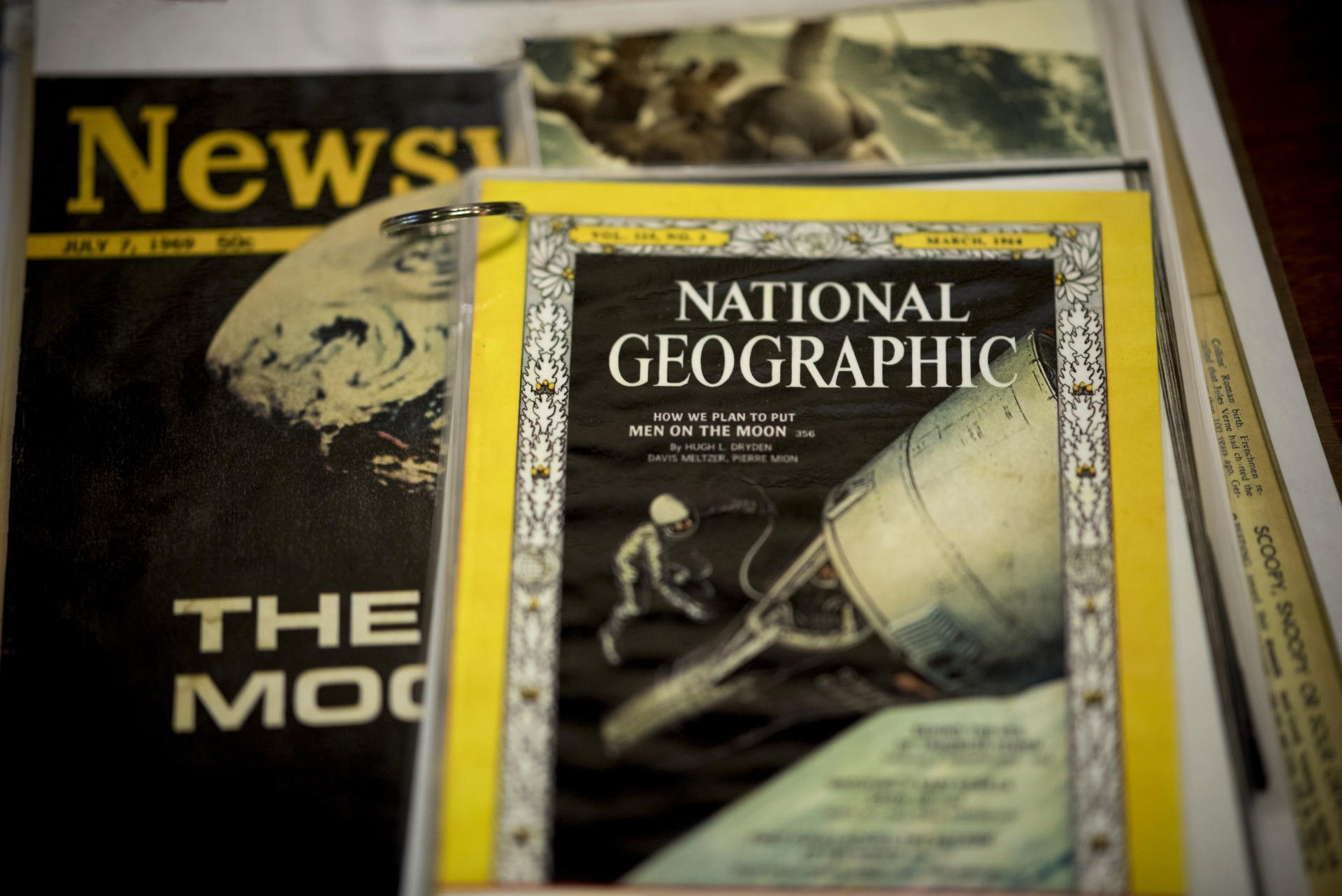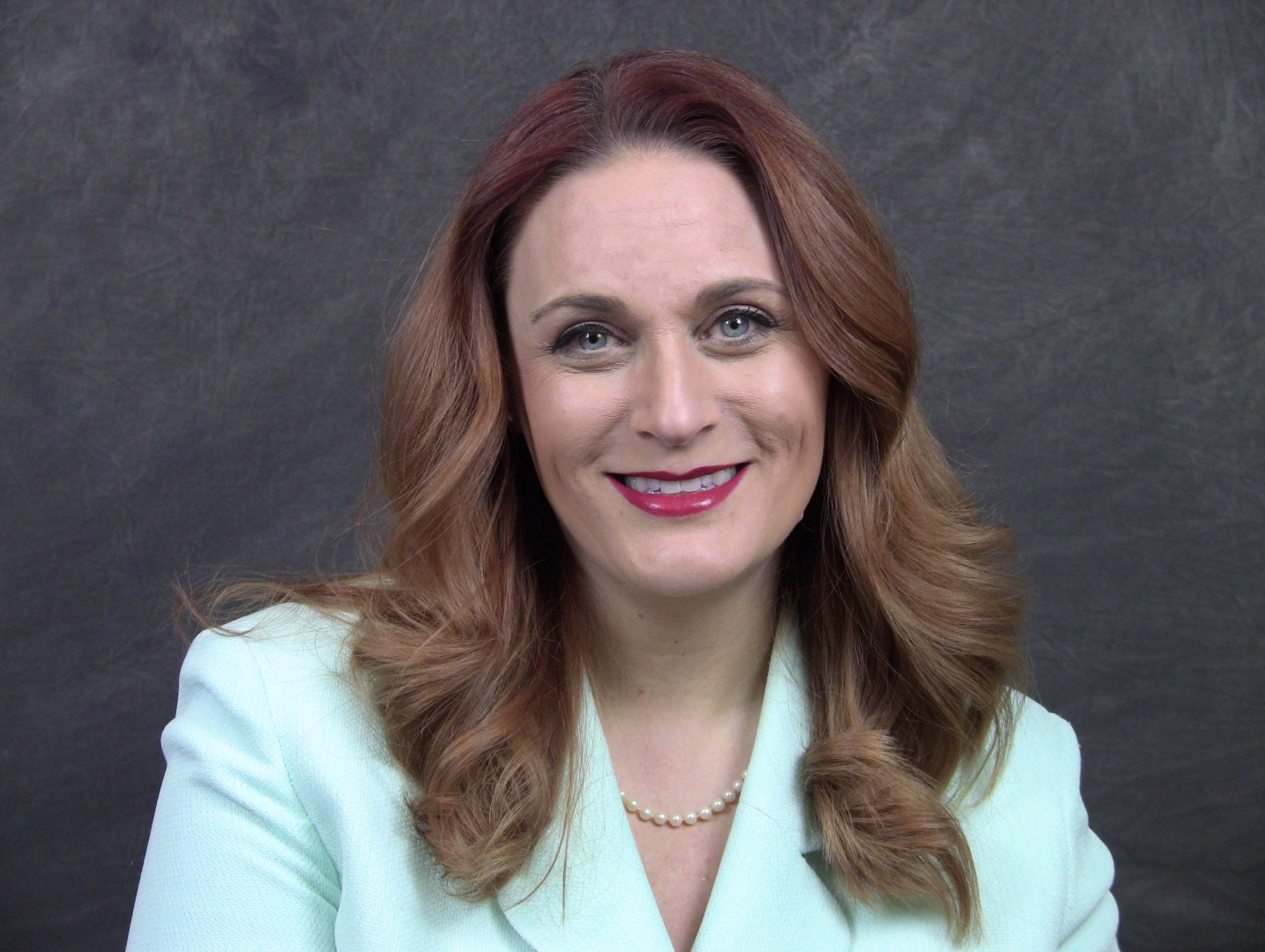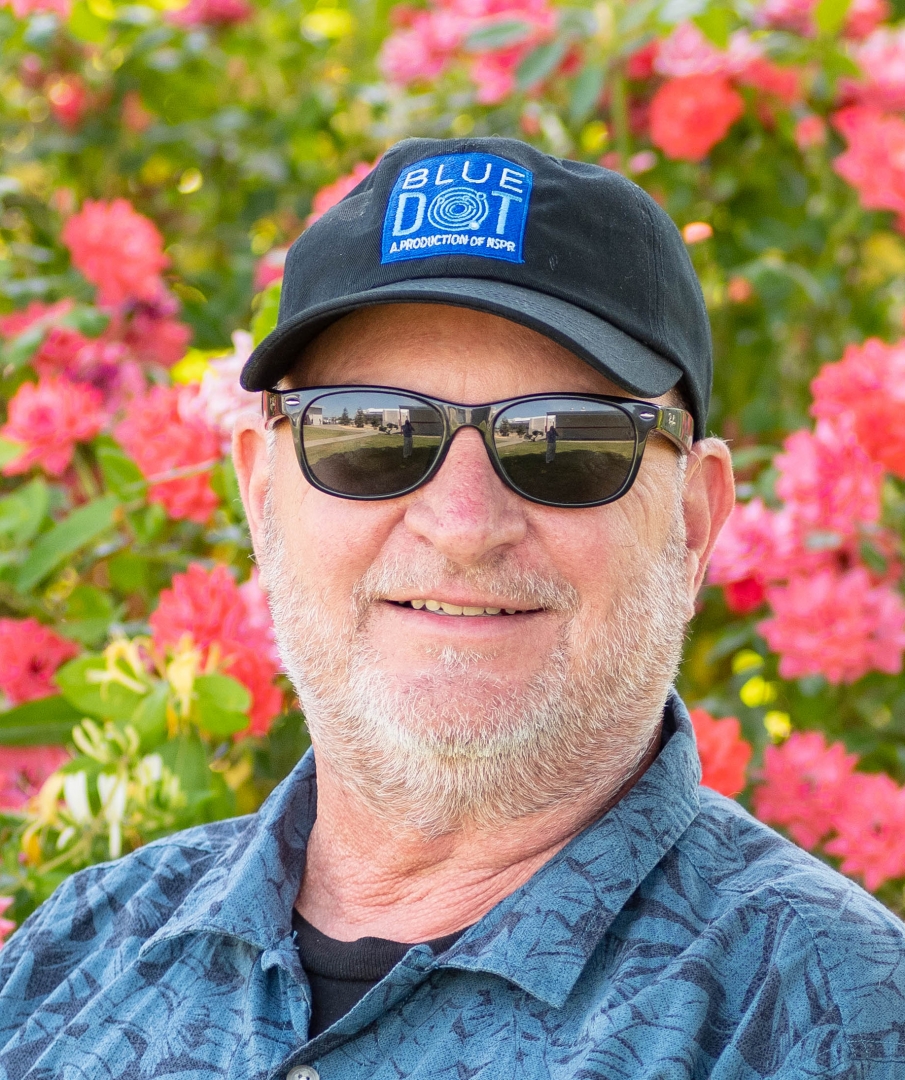“Apollo at 50:” Local Scientists Commemorate History, Look Ahead

Gateway Science Museum’s new exhibit ÒBefore and Beyond the MoonÓ celebrates the human and technological achievements needed to reach the moon, and envisions a future Mars landing on Wednesday, July 3, 2019 in Chico, Calif. (Jessica Bartlett/University Photographer/CSU Chico)
Lisa Westwood and Dave Schlom are truly kindred spirits, giddy scientists with the gift of gab. In conversation, they punctuate deep knowledge with a fun, free-flowing rapport.
And they can talk for hours about the American space program. After recording an episode of Blue Dot together last month titled “The Archaeology of the Space Age,” Westwood, faculty from Chico State’s Department of Anthropology, and Schlom, a physical sciences teacher at Corning Union High School, were eager for more opportunities to share their passion and knowledge.
As they chatted about the historic 50th anniversary of the moon landing on July 20, being commemorated by the Gateway Science Museum’s current exhibit, Before and Beyond the Moon, one of their ideas experienced liftoff.
“We came up with the idea to do something about the moon landing at the Gateway,” Schlom said, “and to do it on liftoff day.”
It would be an understatement to say that Westwood, a prolific writer and the senior author of the book The Final Mission: Preserving NASA’s Apollo Sites, and Schlom, host of Blue Dot, a program on North State Public Radio, share a deep passion for this anniversary.
“This was one of the most important events in human history,” Westwood said. “It’s amazing how much genius went into it—and bravery.”

On Tuesday, July 16—50 years to the day after the launch of Apollo 11—Westwood and Schlom will share their excitement at the Gateway, with a public discussion on the historic NASA mission. The free event, “Apollo at 50: Reflections on History, Technology and Preservation of Space Heritage,” runs from 6 to 8 p.m., and time will be set aside for a question-and-answer session.
Gateway Science Museum Director Adrienne McGraw emphasized this is a unique opportunity for Chico’s space-loving community to have up-close access to local experts in the fields of space travel and space heritage, especially about the landmark Apollo 11 mission.
“Getting Lisa and Dave together to talk about the landing really is a natural fit,” she said. “Chico is in for a treat.”
“Apollo at 50” will explore the cultural, historical, and archaeological meaning of the Apollo space program—and the importance of preserving its history, both on Earth and at Tranquility Base, the lunar landing site. Westwood and Schlom will transport the Gateway audience back to the 1960s, a time of turbulent politics, national bravado, and the race to place human beings in space and, ultimately, the moon.
With the world now two generations removed from the Apollo 11 mission, Schlom suggests the historical significance and tireless teamwork demanded of the first lunar landing may have been lost to time. He hopes that by revisiting this achievement, it will return to our consciousness.
“I think people will have a little deeper understanding of it,” Schlom said, “as well as some of the scales of the effort and planning that went into getting Neil Armstrong and Buzz Aldrin onto the moon.”
When Apollo 11 began its descent to the moon’s surface on July 20, 1969, Schlom said it didn’t matter which country you were from—it was a monumental historical achievement to behold.
“This wasn’t just an American thing, people around the world watched,” Schlom said. “When they were landing, everything just stopped.”

People in their homes assembled around televisions, beachgoers gathered around their radios, Major League Baseball games paused. And in spite of America’s most talented minds working on the lunar exploration, Schlom said a safe landing was not at all guaranteed.
“President Nixon had a statement prepared in case the astronauts were killed,” he said. “It seems like such a sure thing now, but it didn’t feel that way then.”
When Armstrong stepped off Apollo 11 and onto the moon’s surface, it instantly became one of the most significant moments in human, let alone US, history. There will never be another first step on the moon, a major reason why Westwood said it’s imperative to preserve Tranquility Base—especially in light of possible future trips to the moon.
“It was the first time that humans set foot on another celestial body. So, it is really a good example of how the first of anything is really important in human history,” she said. “The very first footprints on the moon, or another celestial body, represent an incredible technological achievement.
“It’s a cultural resource that’s non-renewable,” Westwood added. “Once it’s gone, it’s gone.”
Even before recording the Blue Dot episode with Schlom, Westwood was a longtime fan of the show. A specialist in historical archaeology, including Cold War-era aerospace installations, and regulatory and legal compliance with applicable historic preservation law, she said she and Schlom approach the topic of space history from different yet complementary perspectives.
“I come from the historic preservation side of things,” she said, “and Dave comes from the science side of it. But he definitely has the chops to talk about space heritage.”
As for future advancements in space exploration, Mars appears at the top of the list. And when that happens, Westwood said, science has a chance to do something even better and equally significant—to think about preservation.
“I think it’s inevitable that we go to Mars, and I think it’s a wonderful opportunity right now to recognize the historical importance of that first landing in a way that hadn’t been done in the past,” she said. “I hope people realize that when people step foot on Mars, it’s going to be just as important.”
A revived interest in space travel—SpaceX, for example—encourages Schlom. He’d like to see humans return to the moon, which is three days away, before an attempt to reach Mars, a three-month journey. But he’d also like to see human beings focus more on the only planetary home we have: Earth.
“The legacy of Apollo to me,” he said, “is that we gained an appreciation of how fragile and beautiful this planet is when viewed from the moon.”
Anyone requiring an accommodation in order to attend “Apollo at 50: Reflections on History, Technology and Preservation of Space Heritage” or who has questions about accessibility may contact the Accessibility Resource Center at 530-898-5959 or the Gateway Science Museum at 530-898-4121.


